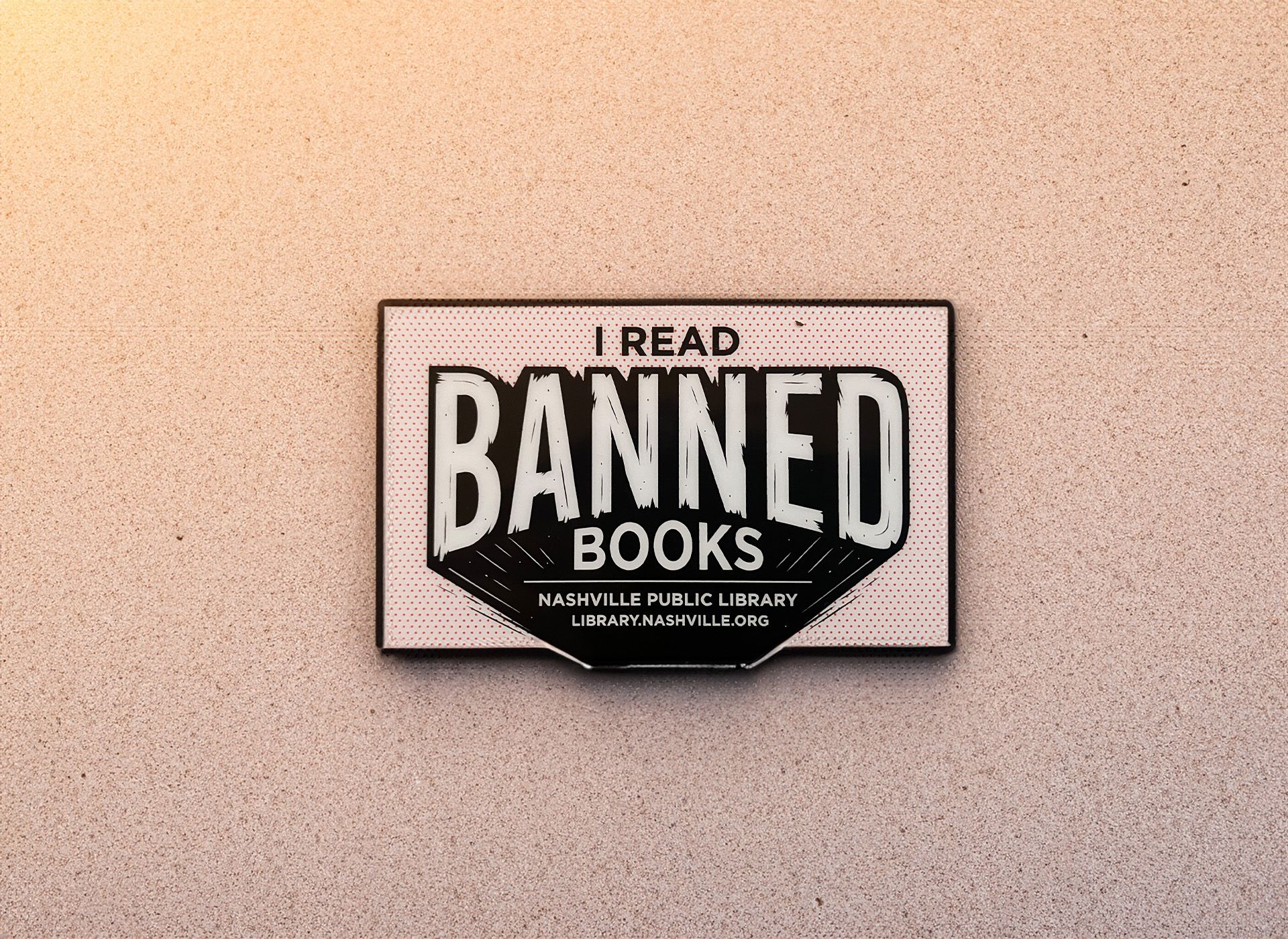
Library Laundering
How taxpayer money supports liberals' art
The culture war's wholesale destruction of neutral civic spaces continues apace, and it's no secret that libraries are on the front lines. This is on full display in Louisville, KY, where branches in Fern Creek and Middletown have been shuttered, and more rural branches, which homeschoolers rely on for educational resources, face constant, existential budgetary concerns, yet space and funding for progressive ideology can always be found.
Much has been made of Drag Queen Story Hour, which aims to “put the rainbow in reading,” but a lesser-known phenomenon lurks underneath the library’s knitting groups, seed exchanges, and adult literacy programs: a patronage network designed to turn taxpayer funding and apolitical branch donations into big payouts for zeitgeist-conforming authors, forcing libraries to struggle under the burden of digital catalog expenses.
Public libraries purchase eBook licenses for $55 a pop. The licenses are good for two years or 26 loans. This shocking number is a consequence of the uneasy compromise reached between publishers and libraries to balance the non-degradability of digital files compared to paper books (which, if popular, would need to be continually re-purchased). In other words, eBooks are big business—big business that appears to benefit one side of the political spectrum.
Let us study two comparable, diametrically opposed books: White Fragility: Why It’s So Hard for White People to Talk About Racism by Robin DiAngelo, and Irreversible Damage: The Transgender Craze Seducing Our Daughters by Abigail Shrier.
Fragility has an incredible number of licenses at libraries around the country (with negligible check-outs at the time this article was written):
- Austin 101 (0)
- Louisville 125 (0)
- Minneapolis’s Hennepin County 366 (4)
- NYC 212 (not provided)
- San Francisco 1,604 (3)
- Seattle 421 (6)
While Louisville may hint at the Nashville Library’s future, NPL is comparatively sane when it comes to White Fragility. With a mere forty-five eBook licenses (and a whopping four checked out), less than $2,500 (only 5¢ per every Nashville adult!) has been spent on this woke apologia. As for Irreversible Damage? NPL, like most of the libraries above, has two whole ebook copies (each checked out, each with a waiting list).

Of course, Shrier’s book did not make the Nashville Library’s Best Banned Book List, despite being effectively banned from sale at Target, and the source of protests against the ABA, including (paid-for-by-the-publisher) promotional material in one of their White Boxes. Banned book support is limited to To Kill a Mockingbird, The Scarlet Letter, The Catcher in the Rye, 1984, and The Kite Runner; and other staples of the public school curriculum, or outside-the-Overton-Window LGBTQIA+ materials, such as Gender Queer. Books that go against the zeitgeist might be canceled, could be weeded from circulation, may have their contracts dropped before they have the opportunity to publish, but they are not banned.
Putting a thumb on the funding scale is just one way Middle Tennessee libraries turn taxpayer money into support for hot-button cultural issues. In an interview with the directors of the Clarksville-Montgomery County and Putnam County Public Libraries, Bryan Jones, a systems librarian at the NPL, counsels members of the Tennessee Library Association on legal ways to provide space for Drag Queen Story Hour. At one point, PCLS Cookeville Director Phil Schaller notes that the branch was previously sued for refusing Bible study groups access to their meeting rooms.
"Before I was ever director," he tells Jones, "a group wanted to hold a Christian Bible Study in one room and one of our former directors refused them. They sued the library and the county over this and the issue was settled out of court. Due to this, we got a newly crafted meeting room policy, crafted by the county attorney, which is the one we are using today."
So, what is to be done? Retreat, as some suggest, is not the answer. Librarians across America’s nine thousand library systems still pay lip service to the idea of serving their communities and providing material their patrons desire. Anyone with a library card may suggest titles be purchased for the library’s catalog. You can organize events and use the publicly rentable rooms. You can check out existing library titles that go against the prevailing ideology, which will prevent those titles from going out of circulation. Taxpayer funding is going to continue going to libraries; the question is merely: where will it go? To abandon public institutions is to further cede territory.
As an author’s wife, this is, of course, personal. It was the stacks of science fiction of his youth—head-high, borrowed from the library—that inspired Devon to write. He grew up on stories of what a high-tech future might look like, how it might feel to be a real person living there, with hopes and aspirations. And when New York-based publishing houses discounted those hopeful narratives, vision, lost perspective, began using fiction to preach of humanity’s inevitable failure… Well, he rolled up his sleeves and wrote a love letter to the sci-fi classics he grew up on.
And now, when I tell him, Look, this library has seven physical copies! Or look, this library has a dozen people waiting for their one digital copy of Theft of Fire: Orbital Space #1 (which, as an independent novel, does not command a $55 price tag to libraries), he smiles, delighted that he’s able to provide for the next generation what authors of decades past provided to him.
Your public library is your public library; do not let NPL go gentle into that good night. Diversity of thought can be muscled back into our public institutions–it just takes bold resolve and courageous ingenuity.
Christine Eriksen is a resident of Chattanooga, Tennessee. Self-appointed Minister of Propaganda for her husband’s novel, she can be found on X (@AnEriksenWife) shamelessly suggesting people sample three chapters of Theft of Fire: Orbital Space #1at DevonEriksen.com, read reviews on Amazon, and support the impending Theft of Fire Audiobook Kickstarter. Her husband Devon Eriksen can be found on X (@Devon_Eriksen_) and Substack.
